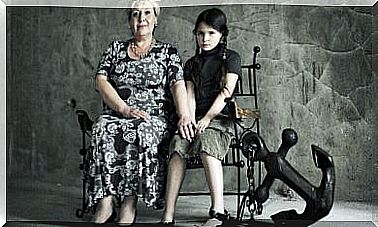Psychological Care Of The New Mother

When a child is born, a mother is born. But the care and attention that one and the other receive are very different. The new mother arrives at childbirth after nine vertiginous months, of overwhelming physical and psychological changes. The tiredness, the physical discomfort, the emotional ups and downs that have accompanied her for nine months, culminate in childbirth. But they don’t end there.
The new mom faces the exhausting and stressful challenge of caring for a newborn. And sometimes, the shadow of depression makes its appearance.
According to the WHO, 40% of women in developed countries suffer from some type of mental disorder during or after pregnancy. In Spain the exact percentage is 20%. Let’s go deeper.

What is the puerperium?
It is a period of physical and psychological adaptation in which the woman who has just given birth must get used to the new life.
We usually imagine this stage as one of joy at being with our baby, but being subject to physical changes, such as hormonal lack of control or rising milk, added to anxiety and anguish about our new role as mothers, causes feelings of insecurity to appear. and doubts related to the care of the baby.
Will she eat enough? Will she cry because something hurts? Will I be able to breastfeed? and endless questions that together with fatigue and bad sleep generate an avalanche of feelings that, many times, we do not know how to manage. Thus, many of us end up experiencing postpartum sadness, instead of that supposed happiness.
What happens to the mind after giving birth?
Postpartum sadness or baby blues is a very common emotional disturbance that affects around 80% of mothers. It appears 2 or 3 days after birth and usually lasts between one and two weeks.
The high levels of progesterone present during pregnancy fall precipitously these days and this affects certain areas of our brain responsible for maintaining mood, which is expressed by:
- Feelings of discouragement, apathy, and sadness.
- Irritability.
- You want to cry for no apparent reason.
- Changes in emotional state.
- Difficulty falling asleep or excessive need to sleep.
- Mild anxiety and trouble concentrating.
How is postpartum depression different from baby blues ?
Postpartum depression is a mood disorder that affects 15% of mothers after giving birth and, due to the severity of symptoms, usually requires treatment.
Women experience feelings of extreme sadness, anxiety, and fatigue that make it difficult for them to carry out daily activities related to caring for themselves and others.
Some of the most common symptoms coincide with those of postpartum sadness or baby blues , but in the case of depression, the feelings of sadness and anxiety are more extreme and the following are also added:
- Having trouble bonding with the baby.
- Constantly doubting your ability to care for the baby.
- Having serious trouble concentrating, remembering details, and making decisions.
- Losing interest in activities that were previously enjoyable.
- Having physical aches or pains, such as headaches, stomach aches, or muscle pain.
- Eating too much or too little.
- Isolating yourself from friends and family.
- Thinking about hurting yourself or the baby.
It is important to take into account the symptoms to detect it in time, since postpartum depression can last for months or years and usually leads to sleep and eating problems in the child, as well as behavior as it grows.

Care recipe for the new mother
- Reserve time as an adult and not just as a mother. Going for a walk with your partner when you return from work, take a relaxing bath, enjoy our hobbies and apply the postpartum golden rule “baby sleep, mom sleep.”
- Express what we feel. Unburden ourselves with our partner or with friends who have gone through or are going through the same stage.
- Delegate. Set priorities and look for other people to help us adapt little by little.
- Establish a visiting schedule. Postpartum visits from family and friends can become a source of stress. Be assertive and ask for the time or frequency that is most comfortable for us.
- Lower levels of self-demand. Give us time. Motherhood is a long-distance race, everything can be relativized and learn to take things easy.










